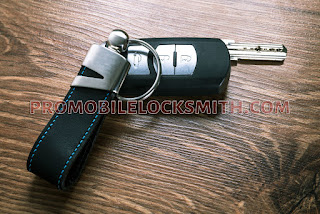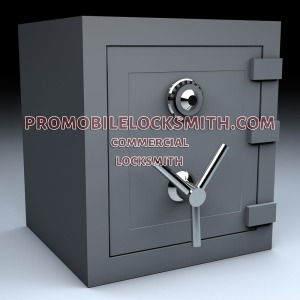Before you panic, we’ve compiled the following information into a guide to help you determine the best course of action if your transponder key is missing. By keeping a level head and following these tips, you’ll navigate this stressful situation with ease. You may even be able to prevent it from happening in the first place. Regardless of whether or not you’ve lost your transponder key, you may find this information helpful.
Is My Car Key a Transponder Key?
First, let’s go over what exactly a transponder key is so that you can know whether or not your vehicle has one and what it means. A transponder key is a vehicle key that usually has a plastic head, inside of which is an electronic microchip. This microchip is the transponder chip, responsible for transmitting and receiving electronic signals to and from your engine’s computer, respectively.
A unique, one-in-a-million numerical code is sent from your key to the engine and the engine responds. If the numbers match, the vehicle will be allowed to start up. If not, the engine will not recognize the key, and the engine will not start. Even if the key physically matches the pins and tumblers inside of the ignition lock, it won’t work without the proper transponder programming.
Ford was the first vehicle manufacturer to use a transponder key system, which they called Passive Anti-Theft System (or PATS) in 1996. It quickly spread among vehicle manufacturers who found transponder keys highly effective and affordable to implement. Even with keyless entry becoming the new standard for vehicle security, many remote key fobs also feature some form of transponder chip. So even if the item you’ve lost is not a physical key but instead a remote fob, it will probably need to be programmed by a locksmith or other certified professional.
Preventative Measures
Before we explain which steps you should take upon losing your transponder key, let’s start by giving a rundown of smart preventative measures you can take to lower your risk of losing your key to begin with. These are simple steps you can take that make losing your transponder key far less likely.
- Establish a Routine Involving Your Keys: Establishing a habit of checking that you know where your keys are when you’re not using them is a crucial part of ensuring they never get lost.
- Have a Spare (or Two): All security professionals, including the experts on our local locksmith team, recommend that everyone have at least one spare key made for each important lock in their life. This includes spare keys for each of your vehicles, your home, and your business.
Read more on: What to Do If Your Transponder Key is Lost or Stolen



